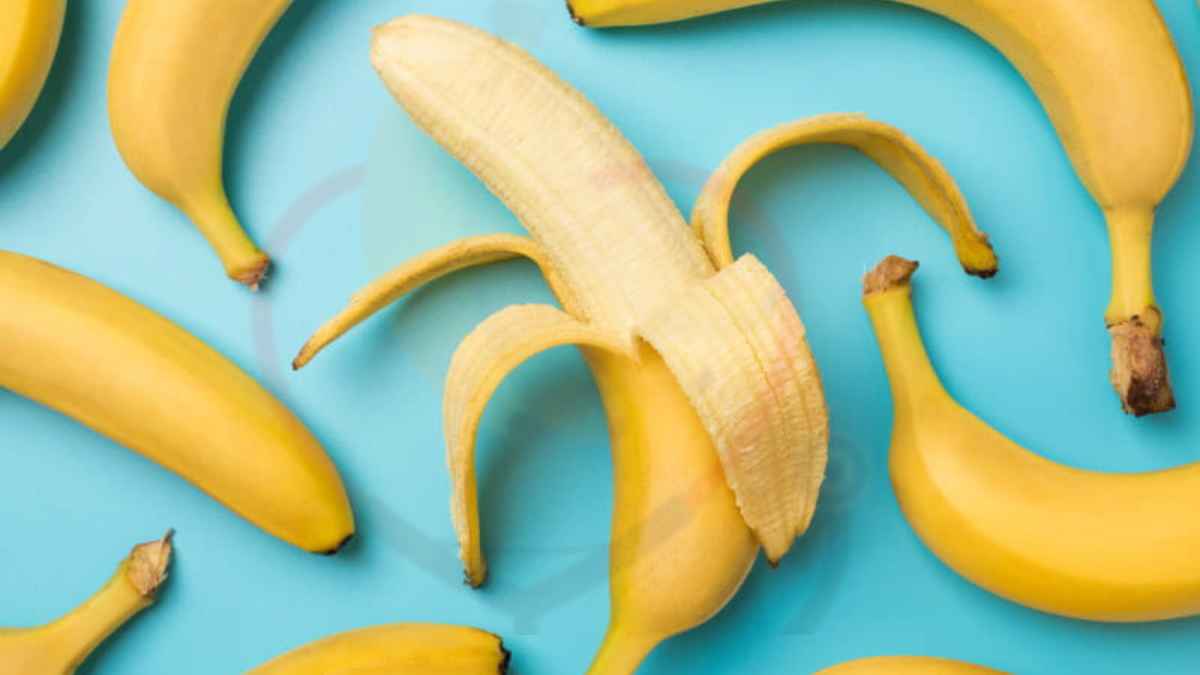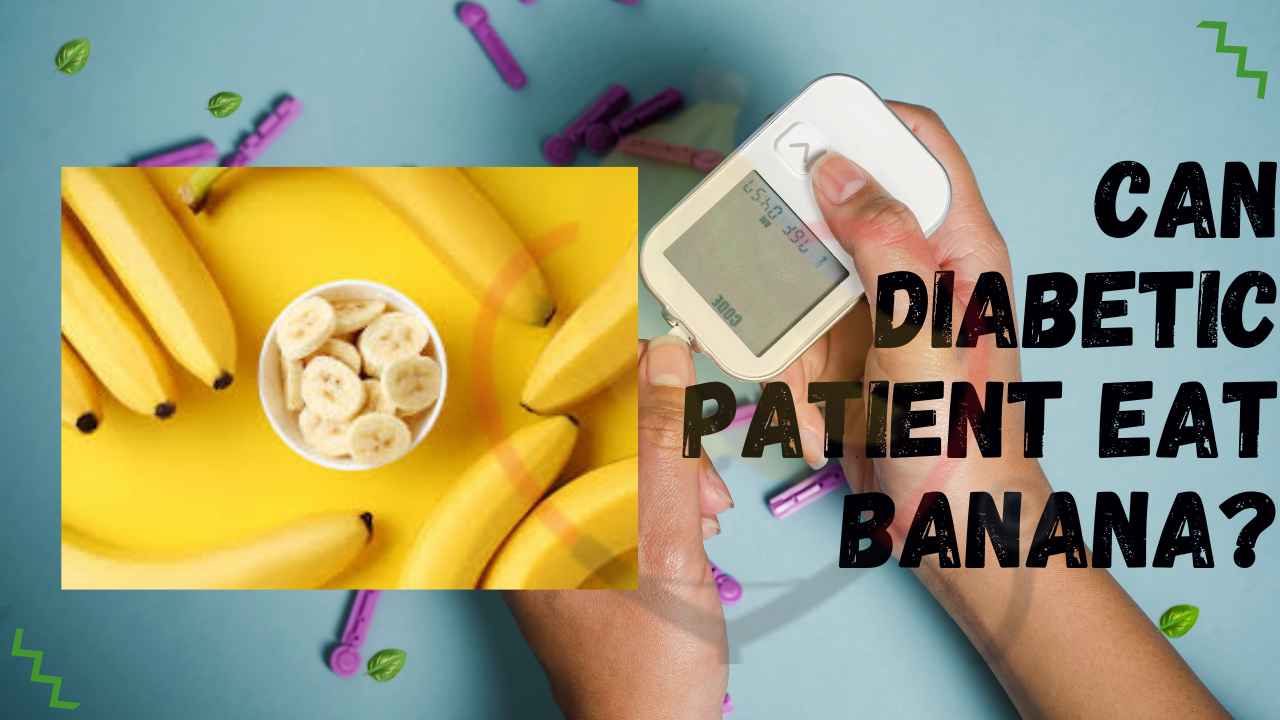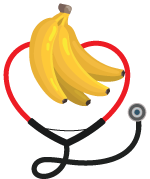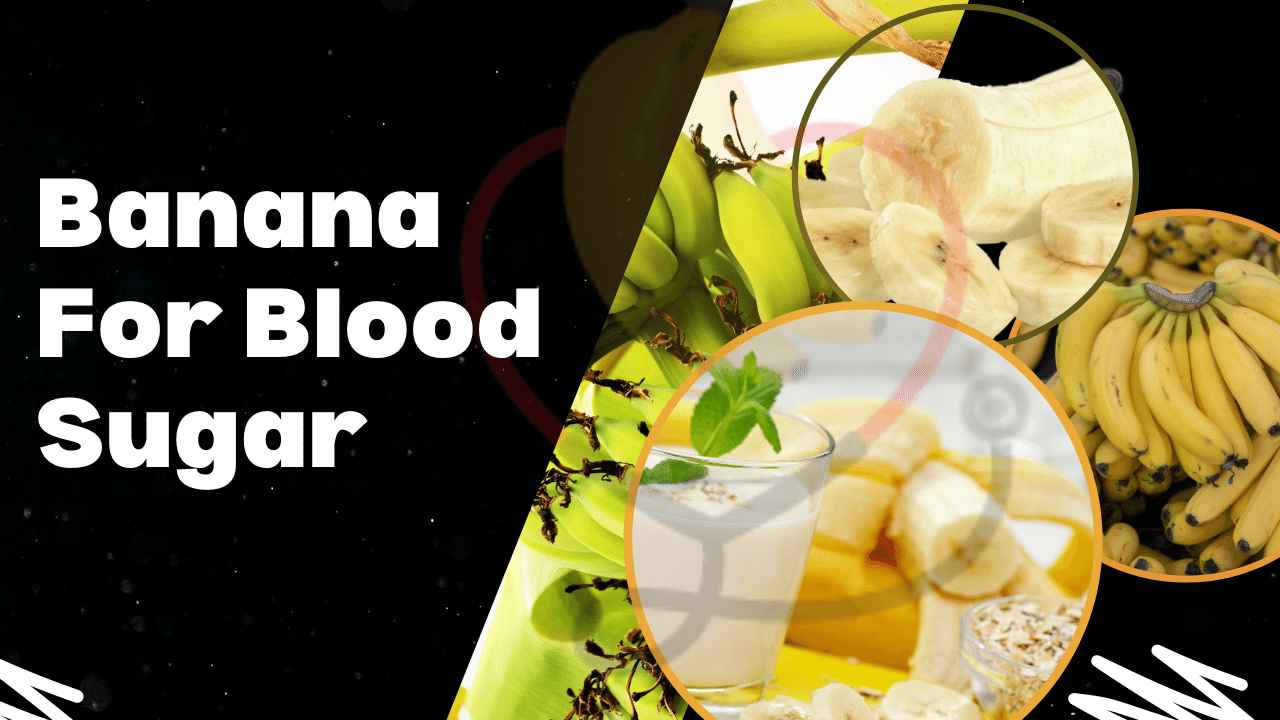Written By Sania Malik || Reviewed By Adeel Abbas
Bananas are a good source of carbohydrates, which provide energy for your body. However, they are also high in sugar, which affect your blood sugar levels.[1]
Blood sugar, or glucose, is the main source of energy for our bodies. When we eat carbohydrates, such as bread, rice, or fruit, our body breaks them down into glucose. [2] This glucose is then absorbed into our bloodstream, where it travels to our cells to be used as energy.
In this article, we will explore the bananas for blood sugar levels and provide tips on how to incorporate bananas into a diabetes-friendly diet.

What is the Glycemic Index?
Before we dive into the impact of bananas on blood sugar levels, let’s first talk about the glycemic index (GI).
- The glycemic index is a measure of how quickly carbohydrates in a particular food raise blood sugar levels. [3]
- Foods with a high GI score are quickly digested and absorbed, causing a rapid rise in blood sugar levels.
- Foods with a low GI score are digested and absorbed more slowly, causing a gradual rise in blood sugar levels.
Bananas and Blood Sugar Levels
Now that we understand the glycemic index, let’s talk about the impact of bananas on blood sugar levels. Bananas have a moderate GI score of around 51, which means that they can cause a moderate rise in blood sugar levels. [4]

Bananas also contain fiber, which slows down the digestion and absorption of carbohydrates, leading to a more gradual rise in blood sugar levels. Additionally, bananas are rich in other nutrients such as potassium, vitamin C, and vitamin B6, making them a healthy choice for people with or without diabetes.
For example, bananas are a good source of potassium, which can help lower blood pressure and reduce the risk of heart disease. They also contain vitamin C, vitamin B6, and fiber, which are important for overall health.
Tips for Incorporating Bananas into a Diabetes-Friendly Diet
For people with diabetes, it is important to balance the intake of carbohydrates with insulin or other diabetes medications to manage blood sugar levels. [6] Here are some tips for incorporating bananas into a diabetes-friendly diet:
1: Choose ripe bananas
Ripe bananas are sweeter and easier to digest, making them a better choice for people with diabetes.
2: Pair bananas with protein or healthy fats
Pairing bananas with protein or healthy fats can slow down the digestion and absorption of carbohydrates, leading to a more gradual rise in blood sugar levels.
Examples include almond butter, peanut butter, or Greek yogurt.
3: Watch portion sizes
While bananas are healthy, they still contain carbohydrates that can raise blood sugar levels. It is important to watch portion sizes and limit intake to one small or medium-sized banana per serving.
4: Eat bananas with other high-fiber foods
Eating bananas with other high-fiber foods can further slow down the digestion and absorption of carbohydrates, leading to a more gradual rise in blood sugar levels. Examples include whole-grain bread, oatmeal, or chia seeds.
5: Consider consulting a registered dietitian
A registered dietitian can help people with diabetes create a balanced meal plan that incorporates all food groups, including fruits like bananas.
Bananas are healthy and nutritious addition to your diet, even if you’re watching your blood sugar levels.
While they do contain natural sugars, their high fiber content helps slow down the absorption of carbohydrates, resulting in a relatively low GI score.
If you have diabetes, it’s important to monitor your carbohydrate intake and eat a balanced diet that includes a variety of nutrient-rich foods, including bananas.
Related FAQs
Are bananas bad for blood sugar levels?
No, Bananas are not bad for blood sugar levels. They are a healthy choice for people with or without diabetes, as they are rich in nutrients such as potassium, vitamin C, and vitamin B6. However, it is important to balance the intake of carbohydrates with insulin or other diabetes medications to manage blood sugar levels.
How many bananas can a person with diabetes eat per day?
The American Diabetes Association recommends limiting intake of bananas to one small or medium-sized banana per serving.
Can people with diabetes eat bananas for breakfast?
Yes, people with diabetes can eat bananas for breakfast.
Can people with diabetes eat bananas?
Yes, people with diabetes can eat bananas, as long as they are eaten in moderation and as part of a balanced meal.
Do bananas cause a rapid spike in blood sugar levels?
No, bananas have a low glycemic index, which means they do not cause a rapid spike in blood sugar levels.
How many carbohydrates are present in a medium-sized banana?
A medium-sized banana contains around 27 grams of carbohydrates, which is equivalent to two carbohydrate servings.
Is it okay to eat bananas if you have diabetes?
Yes, bananas can be a healthy addition to a balanced diet.

